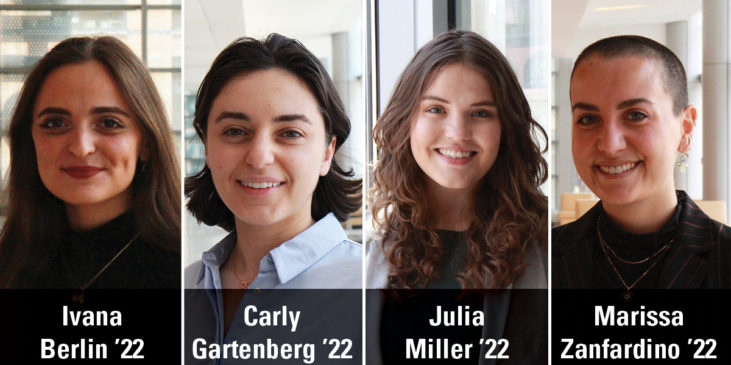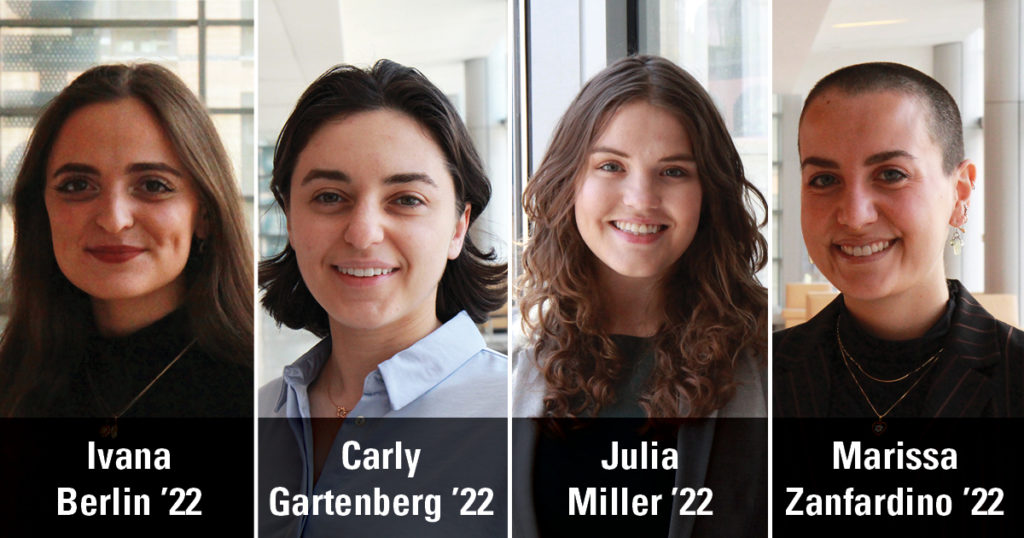
Following graduation from New York Law School, several postgraduate fellows are continuing their work in areas of social justice using skills they honed over their time at the School. Ivana Berlin ’22 will be a Wilf Postgraduate Public Interest Fellow with Disability Rights New York, Carly Gartenberg ’22 will be a Lewis Steel Racial Justice Fellow at NYLS, Jaime Balbuena Hernandez ’22 will be an Immigrant Justice Corps Fellow, Julia Miller ’22 will be an Immigrant Justice Corps Fellow, and Marissa Zanfardino ’22 will be a Wilf Postgraduate Public Interest Fellow with Manhattan Legal Services.
We spoke to some of the fellows to get to know them, their interests, and their goals for the next year.
Ivana Berlin ’22, Wilf Postgraduate Public Interest Fellow with Disability Rights New York
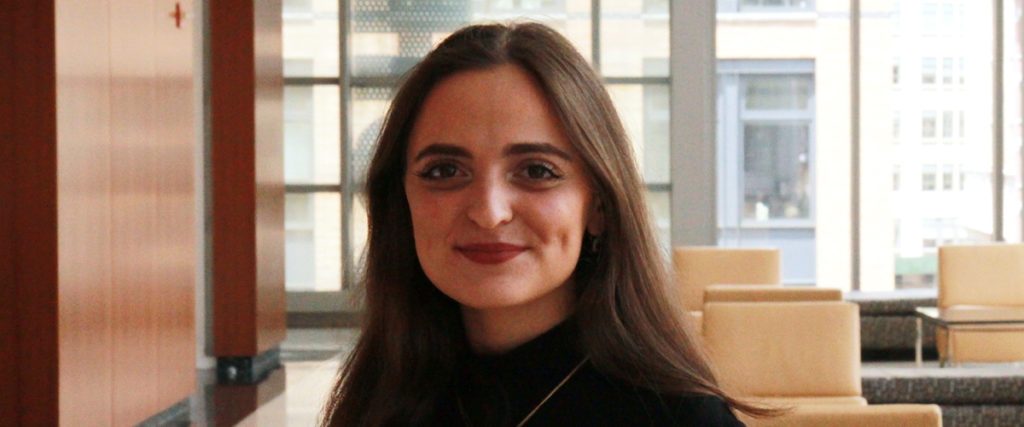
What was life like before NYLS?
I’m from Brooklyn, New York. I graduated from Adelphi University in 2018 with a B.S. in criminal justice. I was Vice President of the Criminal Justice Club and President of my school’s chapter of Alpha Phi Sigma, the National Criminal Justice Honor Society.
What drew you to your fellowship?
During my undergraduate studies, I learned about the fundamental failures of the criminal justice system—one of the largest providers of mental health care in the country—in its treatment of mentally ill prisoners. The knowledge of those systemic failures inspired me to go to law school with the goal of pursuing mental health law.
I was drawn to the Protection and Advocacy of Individuals with Mental Illness (PAIMI) program at Disability Rights New York (DRNY) for several reasons. First, PAIMI protects and advocates for people with significant mental illness in a wide range of settings, such as schools, psychiatric hospitals, nursing homes, and jails/prisons. In addition to representing many different client populations, this fellowship will allow me to tackle systemic issues that adversely impact the interests and needs of people with significant mental illnesses in areas such as employment, education, and housing. Moreover, this fellowship will expose me to a variety of legal advocacy work, such as direct client services, complex litigation, monitoring of congregate care facilities for abuse and neglect, legislative advocacy, and community outreach and education.
What goals do you have for life after law school?
After three years of focusing pretty much solely on the law, two goals of mine are to dive into other areas of interest (I’ve started this by trying to see as many museums as possible post-bar exam) and to discover the ever-elusive concept of work-life balance.
Carly Gartenberg ’22, Lewis Steel Racial Justice Fellow at NYLS
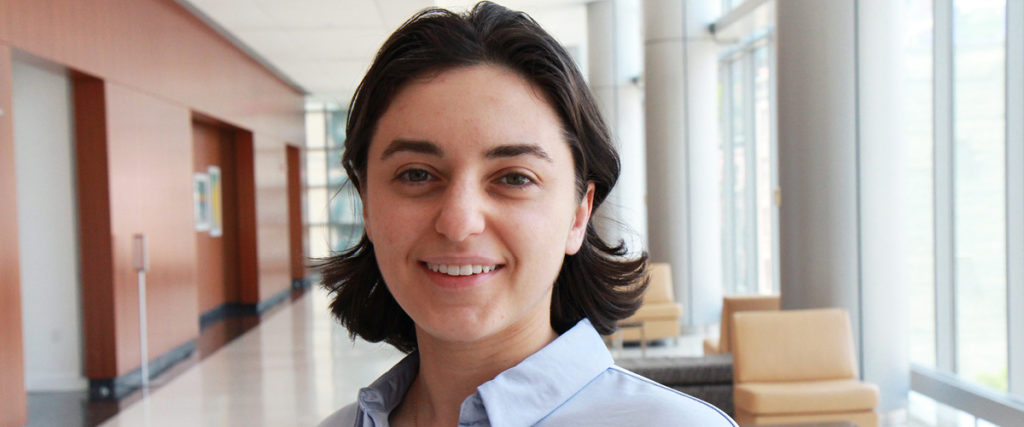
What was life like before NYLS?
My hometown is White Plains, New York. I graduated from Ursinus College (just outside Philadelphia) in 2017, where I majored in psychology and minored in studio art.
What drew you to your fellowship?
From my work in a prison setting to my work in housing rights—and even in my experiences in law school classes—it is undeniable that racism continues to divide and oppress. While it may manifest in individual incidents, such incidents implicate the broken overarching systems. In thinking about my career, I was eager to continue learning about these structures; to continue to grapple with hard questions, such as, what has gone wrong, and what continues to stand in the way of change? To that end, I am continuously impressed by the initiatives of the New York Law School Racial Justice Project and the Fines and Fees Justice Center and felt moved toward legal work in furtherance of our shared ideals.
What goals do you have for life after law school?
I want to continue reading and learning—about the world and about myself. I want to continue collecting experiences and wisdom from others. I want to stay strong in my convictions and passionate about my work while remaining open-minded and kind. I want to prioritize work-life balance, build community, and see more of the world.
Julia Miller ’22, Immigrant Justice Corps Fellow
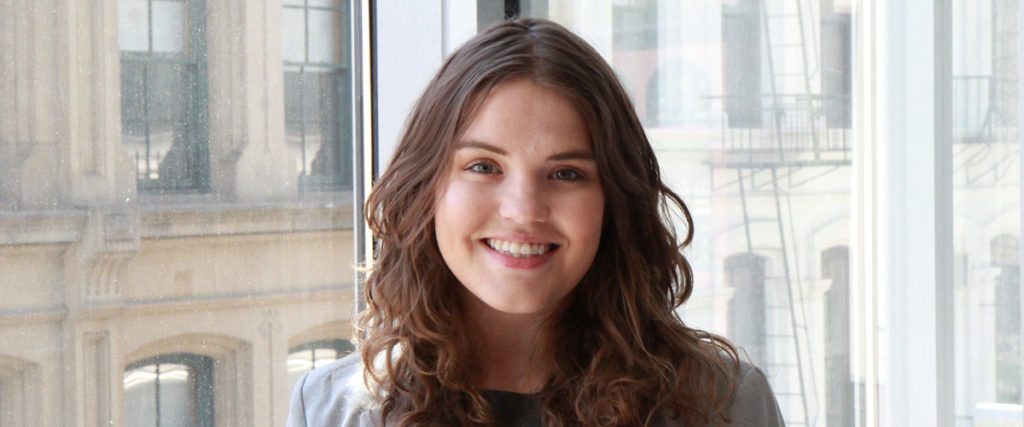
What was life like before NYLS?
I was born and raised in Oakland Township, Michigan. For undergrad, I attended Michigan State University. After one semester of pre-med and an eye-opening course on social inequality, I switched my major to political science—pre-law. That next semester, I was selected by a faculty member to become a Political Science Scholar and joined my school’s chapter of Kappa Alpha Pi, a professional pre-law fraternity. In May of 2018, I graduated from MSU with honors.
What drew you to your fellowship?
I was drawn to the Immigrant Justice Corps Fellowship because of its focus on creating a more equitable immigration system, starting by providing pro bono legal services to underrepresented immigrant communities. Ever since I was a child and learned about my own family’s journey into the United States through Ellis Island, I have been fascinated by our country’s history with immigration. Unfortunately, it took very little research for me as a child to realize that the complicated history of immigration in the United States is marked more often by fear and exclusion than compassion and humility.
After graduating from MSU, I worked for Castellana Immigration Law, a family-based immigration law firm. There, I became further enraged and impassioned about the inequities in our immigration system—so much so that I decided to go to law school and join the fight toward fixing it. My advisors and faculty mentors, including Swati Parikh and Professor Lenni B. Benson, discussed this fellowship and other comparable fellowships with me at length. What ultimately made me choose this one above all others is its specific focus on immigration, which I knew would provide me with a more comprehensive and informative immigration-specific training and extensive network connections in the immigration field.
What goals do you have for life after law school?
When I started law school, my post-law school goal was simpler—to be an immigration attorney. Now, that goal has evolved to match my abilities and grown in ambition to meet the needs of the communities I want to serve. While I don’t know what the future holds, my goal now is to maximize my ability to effect change. This may take the form of getting involved in legislation and policy writing; this may involve coordinating pro bono projects or community education events; this may even involve coming back to teach one day. What I know for sure is that in the next two years, I want to learn as much as I can, discover the ways in which my unique skill set can advance my cause, and start thinking about where I need to be after the fellowship to maximize my impact.
Marissa Zanfardino ’22, Wilf Postgraduate Public Interest Fellow with Manhattan Legal Services
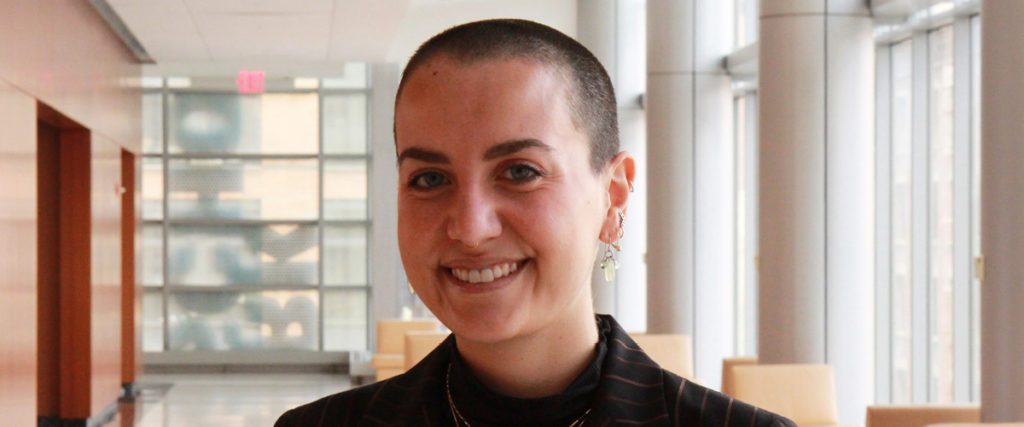
What was life like before NYLS?
I’m from Massapequa, New York, and I went to Tulane University, where I received a B.S. in economics and sociology. At NYLS, I was involved with Outlaws, First Generation Professionals, and the Wilf Impact Center.
What do you hope to get out of your time as a fellow?
I hope to be impactful in my fellowship and to assert and advance the rights of domestic workers. I hope to create a level of sustainability during my fellowship where Know Your Rights training can allow domestic workers to feel empowered to assert their rights. I also hope to further my skills in the field of public interest law and create lasting relationships with others doing similar work.
What goals do you have for life after law school?
My goal after law school is to continue to pursue public interest law. I would like to do direct services and work with communities to further advance equity. Eventually, I would love to teach in some capacity and go back to school to further my knowledge in this field. I think it is important to continue to learn and push the bounds of our understanding of both systems and people.

